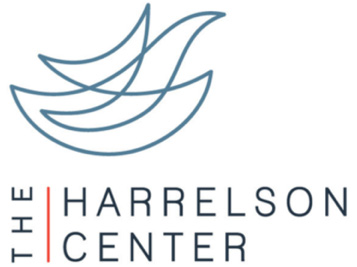This post is part of a series: Minding Our Business: Giving, Receiving & the Nonprofit Sector
At Angel Oak Creative, we believe nonprofits can and do change the world, relationships are critical, and impact requires intention. As a strategic communications partner to mission-driven organizations, we have a front-row seat to the challenges and triumphs nonprofits face every day. One truth has become increasingly clear: the traditional model of philanthropy isn’t working. The top-down, overly restrictive, output-obsessed approach is not only unsustainable—it is counterproductive.
The time has come to embrace a new model of giving—trust-based philanthropy—and we’re here for it. Yes, we have a vested interest. As an agency partner, we’re part of what’s often labeled “overhead.” But we also have a deep conviction that mission work deserves more than micromanaged grants and short-term expectations. Nonprofits need partners who:
- trust them to make the right decisions based on years of experience and expertise.
- fund them holistically with the understanding that “programs” don’t run themselves.
- and walk with them for the long haul rather than the hit-and-run approach so prevalent in today’s philanthropy.
What Is Trust-Based Philanthropy?
Trust-based philanthropy is rooted in a simple but (sadly) radical idea: funders should trust nonprofits. This model calls for a shift in power, moving away from rigid grant structures and toward mutual accountability, unrestricted funding, and long-term partnerships. It prioritizes transparency, open communication, and a recognition that those doing the work on the ground know best how to use the resources they’re given.
At its core, trust-based philanthropy says, “We believe in your mission, we believe in your expertise, and we believe in you to carry it out.”
The Problem with Business-As-Usual
For decades, nonprofits have been forced to operate in a climate of scarcity and onerous scrutiny. Too often, the current philanthropic system reinforces a harmful narrative: that nonprofit leaders must constantly justify their value, minimize overhead, and produce short-term wins to remain “worthy” of funding.
This mindset not only erodes trust, it also stifles innovation, limits impact and burns out leaders. It also devalues the strategic, administrative, and creative investments that actually enable long-term impact. When funders restrict dollars to direct service only, they cut off the very muscles that help nonprofits grow stronger and more sustainable – people, innovation, engagement and resources.
Let’s be honest—when marketing, strategy, operations, people and leadership development are considered luxuries, we’ve got the equation all wrong.
Why Angel Oak Creative Believes in Trust-Based Giving
At Angel Oak Creative, we know the power of investing in capacity. Our work in branding, strategy, fundraising, and digital engagement is not peripheral—it’s transformational. We’ve seen time and again that when nonprofits are equipped to tell their story, rally supporters, and scale their impact, lives change. Communities change.
So yes, we are overhead. But we are also catalysts for growth. And trust-based philanthropy clears the way for organizations to make these vital investments without jumping through hoops or hiding their true needs.
We advocate for this model not out of self-interest, but out of solidarity with the nonprofits we serve. Because we’ve walked alongside founders, executive directors, and development staff who are passionate, exhausted, and under-resourced. And we know it doesn’t have to be this way.
What Trust Looks Like in Practice
Trust-based philanthropy isn’t just a theory—it’s a practice. And it looks like:
- Unrestricted, multi-year funding that allows nonprofits to plan, experiment, and grow without fear.
- Streamlined grant processes that reduce administrative burden and honor nonprofit leaders’ time.
- Listening before prescribing, asking grantees what they need instead of telling them what to do.
- Investing in capacity/operations, including branding, communications, fundraising, technology, and staff development.
- Nonprofits leading the way, not falling into the trap of supporting restrictive funding just for the money.
In short, it’s about** trust not control. **
A Call to Courage
Change is hard—especially when it involves power dynamics, accountability, and money. But we believe the philanthropic sector has a moral and strategic imperative to evolve.
Funders must let go of control and lean into trust. Nonprofits must be honest about their true needs and stop apologizing for building strong, strategic infrastructure. And partners like us must continue to speak truth, advocate for change, and model what healthy, trust-based relationships look like.
We’re not perfect. But we’re committed. And we’re encouraged by the momentum we’re seeing across the sector—foundations rethinking their grantmaking, donors becoming more relational, and nonprofit leaders reclaiming their voice.
The Future We’re Building Together
At Angel Oak Creative, we believe in the power of nonprofits to make transformative change in their communities and the world. We envision a nonprofit sector where relationships are rooted in trust, not transactions. Where leaders are empowered to dream boldly, plan wisely and do what they do best. Where creative and strategic investments are seen not as overhead, but as mission-critical elements that build capacity and support.
Trust-based philanthropy isn’t just a novel idea—it’s a return to the values that nonprofits were built on: relationship, resilience, and rootedness in community.
It’s time to transform the way we think about philanthropy. It’s time to trust more and control less. The mission—and our opportunity to change the world—depend on it.
David Chatham is a senior client success strategist and Angel Oak Creative. To learn more about Angel Oak Creative visit www.angeloakcreative.com.
The Undercurrent is a platform for diverse perspectives across the nonprofit sector. Views expressed in guest posts are those of the authors and do not necessarily reflect the views of the Harrelson Center, its staff, Board or Partners.

